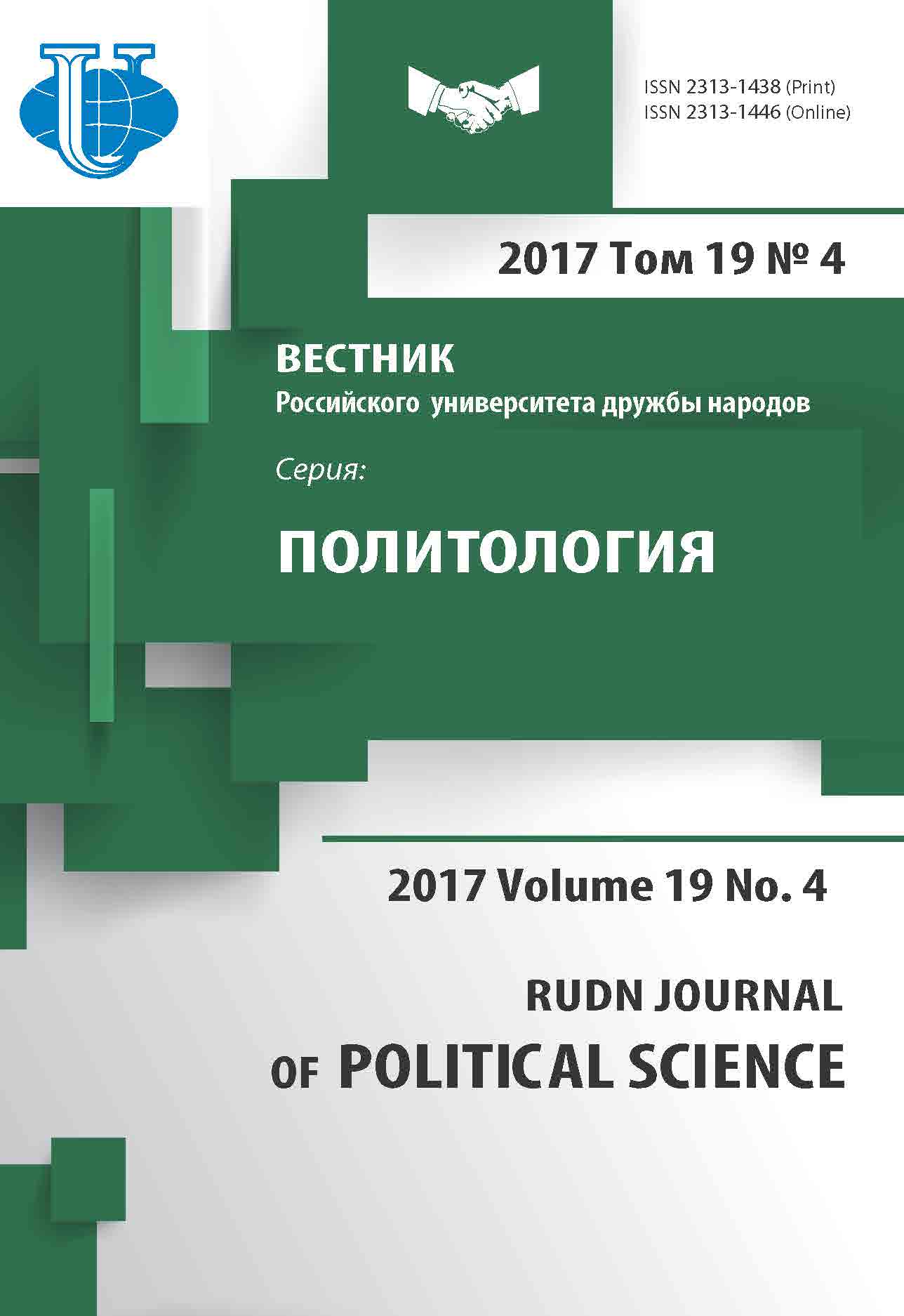POLITICAL FACTORS OF INSTITUTIONAL DEVELOPMENT OF RUSSIAN PUBLIC SERVICE
- Authors: Borshevskiy GA1
-
Affiliations:
- Russian Presidential Academy of National Economy and Public Administration (RANEPA)
- Issue: Vol 19, No 4 (2017)
- Pages: 403-411
- Section: ARTICLES and REVIEWS
- URL: https://journals.rudn.ru/political-science/article/view/17573
- DOI: https://doi.org/10.22363/2313-1438-2017-19-4-403-411
Cite item
Full Text
Abstract
We define the civil service as a political and administrative institution established to meet the needs in the professional performance of political decisions and providing the daily contact between the society and the political power. The definition of civil service in the Russian legislation is not fit the features of public institution, that is why the institutionalization of the civil service in post-Soviet Russia face difficulties. We see ways to overcome this contradiction, which include the improvement of legislation and implementation to the strategic documents the goals, objectives and performance criteria of civil service institution-building. This goals and objectives should orientate the civil servants to ensure economic growth and improving the quality of citizen’s life. The architecture of the civil service institution was offered, including the legal, institutional and human components. We identified the institutional charac-teristics and location of this institution in the environment of society. The algorithm of civil service in-stitutional change was clarified, which includes elements such as institutional selection, the definition of institutional norms and institutional effects. The requirements for the assessment of institutional effectiveness were formulated. We proved the necessity to describe the driving forces of civil service development not only by external influences, but also its internal environment. The comparison of this set of statistics with indicators of internal development of the civil service allows concluding about the correlation be-tween the civil service performance on different stages of its institutional transformation and attainment the priorities of the economy and society.
About the authors
G A Borshevskiy
Russian Presidential Academy of National Economy and Public Administration (RANEPA)
Author for correspondence.
Email: ga.borshchevskiy@migsu.ranepa.ru
Georgiy Aleksandrovich Borshevskiy - Ph.D. (History), Associate Professor, Department of Civil Service and Personnel Policy, Russian Presidential Academy of National Economy and Public Administration (RANEPA)
82 Vernadskogo Av., Moscow, 119571, RussiaReferences
- Barabashev A.G. Krizis gosudarstvennogo upravlenija i ego vlijanie na osnovnye administrativnye paradigmy gosudarstva i bjurokratii. Voprosy gosudarstvennogo municipal'nogo upravlenija. 2016; 3. S. 163—194 (in Russ).
- Gaman-Golutvina O.V. Mirovoj opyt reformirovanija sistem gosudarstvennogo upravlenija. Vestnik MGIMO. 2013; 4. S. 187—194 (in Russ).
- Gel'man V.Ja. Modernizacija, instituty i «porochnyj krug» postsovetskogo neopatrimonializma. SPb.: Evropejskij un-t, 2015. 59 s. (in Russ).
- Slatinov V.B. Reformirovanie gosudarstvennoj sluzhby v Rossii: institucional'nye jeffekty i lovushki. Rossija i sovremennyj mir. 2012; 1. S. 79—90 (in Russ).
- Shastiko A.E. O metodologii institucional'nyh issledovanij. Voprosy jekonomiki. 2016; 8. S. 96—120 (in Russ).
- Shul'man E.M. Politicheskie uslovija i faktory transformacii zakonotvorcheskogo processa v sovremennoj Rossii: dis.. k.p.n. Moscow, 2013 (in Russ).
- Drechsler W. The Rise and Demise of the New Public Management. Post-autistic Economics Review. 2005; 33. P. 17—28.
- Lynn L.Jr. What is a Neo-Weberian State? Reflections on a Concept and Its Implications. NISPAcee Journal of Public Administration and Policy. 2008; Vol. I; 2. P. 17—37.
















